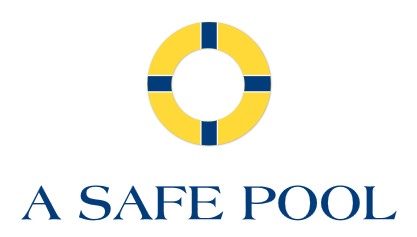If you work in or around a facility with a swimming pool or spa, you’ve probably heard about CPO certification–it may even be required to obtain a pool operator license. The Certified Pool & Spa Operator Certification is a program offered by the Pool and Hot Tub Alliance, or PHTA (formerly the National Swimming Pool Foundation, or NSPF). It helps ensure that water attraction professionals have the training they need to safely operate pools and spas in a manner that’s sound for them, their employees, and the public who may use their facilities.
What It Means To Be A Pool Operator
CPO Certification is not meant for backyard pool owners or people who want a hot tub at home. This certification is specifically designed for owners, managers, and primary operators of facilities that offer pool and spa services to members or the public. Whether it’s a public pool, a gym, a country club, or a hotel, certified employees are given the skills to maintain a safer aquatic attraction. This creates a more hospitable environment for guests and mitigates the facility’s liability exposure for providing a water amenity.
In many states, such as Utah and New Mexico, as well as some counties and municipalities, CPO Certification is a requirement to obtain a pool operator license. In other areas, like Nevada, the certification isn’t required, but equivalent knowledge is. Even in areas that don’t require certification, your insurance provider may require or offer discounts for certification. Even without requirements or incentives, making sure your primary stakeholders know the ins and outs of safe pool operation is a smart choice.
What The CPO Certification Course Covers
The certification is designed to give attendees an intensive education into the wide-ranging topic of pool safety. You’ll cover proper pool chemistry, mitigating physical hazards, facility management, general safety, risk, and liability topics among others. It helps you understand how to maintain the water at optimal conditions, but more than that it’s about creating a safer aquatic attraction for your guests. It’s a lot of information, but when it comes time for the test, you’ll be able to use your book because it’s not about memorizing; certification is about professional safety.

What CPO Certification Entails
Businesses can’t always shut down for multiple days to get their staff to training, so the PHTA offers two ways to complete the requirements for your certification. Both give you the information you need in order to get certified, but they allow you the flexibility to choose the right fit for your operation.
- Traditional 2-Day Class – For those who can be scheduled away from the facility for two consecutive days, a traditional 12-14 hour class gives them the classroom time they need for a traditional learning experience. This offers immediate interaction with both the instructor and other students as you cover the Pool Operator Primer, the CPO Certification handbook, on the first day. The second day will be intense and hands-on as you get ready to take the open book certification exam.
- Blended Training – Whether you can only spare a staff member for a day, or just feel they’d do better with electronic learning methods, blended training can provide the same great training to anyone with pool operator license needs. You get full access online to the Pool Operator Primer. Once you’ve completed it, you can either attend a one-day Pool Operator Fusion class or the second day of a traditional CPO Certification class. There you’ll have full access to a certified instructor and will be able to take the open-book test with other students seeking certification.
Finding Your Class
Once you know which learning option is right for you, finding a class–and the details for the class you select–is easy. Go to the HPTA’s CPO Certification class locator. It will help you find out where the closest classes are being offered and how much they’ll cost. That way you can make an informed decision about moving forward.
Do I Need CPO Certification For My Pool Operator License?
This is entirely dependent on where you live, but with 24 states and the District of Columbia currently requiring certification and still more states requiring some kind of education in safe pool techniques, it’s something you should check into. While you’re checking your relevant state’s laws, you’ll also want to verify the rules for your municipality, and make sure your company’s insurance carrier doesn’t have additional requirements.
Making Your Aquatic Facility Safer
Making sure your key employees have their CPO Certification is an important part of running a safer aquatic attraction, but there are other steps you can take as well. Making sure your pool is protected from unauthorized use without supervision by installing safety fences or pool safety covers are a great way to provide physical barriers to help keep guests out of the water inadvertently. Call our specialists at 866-651-POOL, and they’ll set up a time to come talk about your facility’s needs and what we can do to help your pools and spas stay safer. Contact A Safe Pool today.
